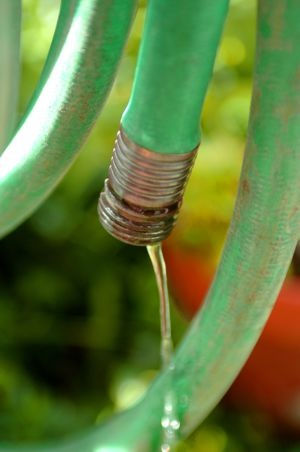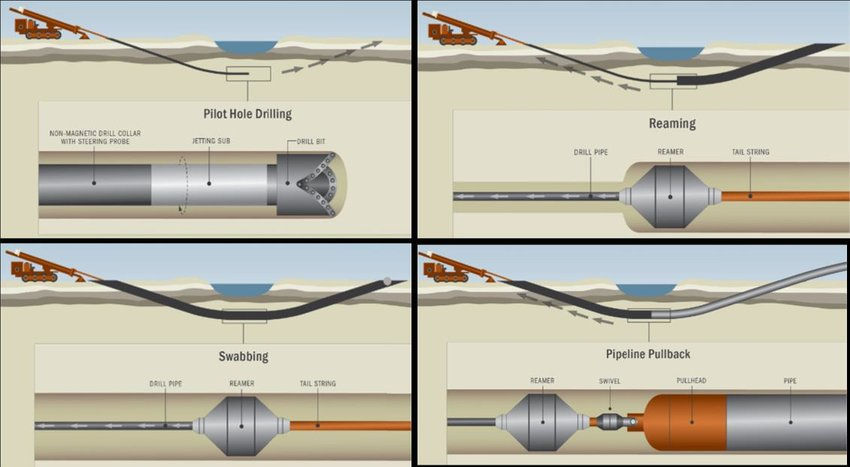Understanding Code Compliance in Drilling for Conduit Wire Installation
- Grid Tech
- Jan 30, 2024
- 4 min read
Drilling pipe conduit wire installation is a common practice in various construction and electrical projects. It allows for the safe and organized routing of wires and cables through walls, floors, and ceilings. However, when it comes to drilling for conduit wire installation, code compliance is a crucial aspect that cannot be overlooked.
Today, here, in this comprehensive guide, we will explore the implications of code compliance in the context of drilling for conduit wire installation.
Ensuring that your drilling processes adhere to relevant codes and regulations is not just about avoiding fines and penalties; it is about ensuring the safety and reliability of your electrical systems.
So, let's delve into the world of code compliance and understand why it matters so much in the realm of drilling for conduit wire installation.

The Implications of Code Compliance when Drilling for Conduit Wire Installation
Drilling pipe conduit wire installation is a task that demands precision and adherence to safety standards. Code compliance is a fundamental aspect of this process, as it ensures the installation is not only functional but also safe and reliable. Here, we will explore the implications of code compliance when drilling for conduit wire installation.
1. Safety First:
One of the primary reasons code compliance is crucial in drilling pipe conduit wire installation is safety. Electrical codes and regulations are designed to minimize the risk of electrical hazards. When drilling conduit paths, you need to be mindful of the proximity to existing electrical systems, plumbing, and structural elements. Adhering to code ensures that your installation does not compromise the safety of the building and its occupants.
2. Avoiding Costly Mistakes:
Non-compliance with electrical codes can lead to costly mistakes. For instance, drilling without considering the required depth for conduit wires can result in exposed wires or damage to existing infrastructure. Rectifying such mistakes can be expensive and time-consuming. Following the code from the start helps you avoid these pitfalls.
3. Legal Obligations:
Ignoring code compliance can have legal consequences. Electrical codes are often enforced by local authorities, and violations can result in fines or even legal action. It is essential to research and understand the specific codes and regulations applicable to your region before commencing any drilling for conduit wire installation.
4. Ensuring Functionality:
Code compliance also ensures the functionality of the conduit system. Properly sized and positioned conduit paths guarantee that wires can be installed and maintained effectively. This ensures that your electrical systems will operate as intended, without interruptions or malfunctions.
5. Long-term Reliability:
Conduit wire installation is typically a long-term investment. Code-compliant installations are more likely to stand the test of time. When you follow the regulations, you're ensuring that your conduit system will remain reliable for years, reducing the need for costly repairs or replacements.
6. Preventing Overloading:
Electrical codes include guidelines for load calculations and the number of wires that can be placed within a conduit. Non-compliance can lead to overloading, which can cause overheating and potential fires. Ensuring that you adhere to these load capacity guidelines is vital for the safety and longevity of your electrical system.

7. Environmental Impact:
Some codes also address environmental concerns. For example, drilling pipe conduit wire installation techniques that can harm the environment may be restricted or regulated. By following code compliance, you can contribute to environmentally responsible drilling practices.
8. Insurance Considerations:
Insurance companies may require proof of code compliance for coverage on electrical drilling pipe conduit wire installations. If an incident occurs, and your installation is not up to code, your insurance claim could be denied. Compliant installations provide peace of mind, knowing that you are covered in case of unforeseen events.
9. Professional Reputation:
For contractors and electricians, a reputation for adhering to code compliance is essential. Clients and customers seek professionals who prioritize safety and quality work during drilling pipe conduit wire installation. Demonstrating your commitment to code compliance can help you build a positive professional reputation.
10. Keeping Up with Changes:
Electrical codes are not static; they evolve over time to adapt to new technologies and safety standards. Staying informed about code changes and updates is essential to ensure that your drilling practices remain compliant with the latest requirements.

The Bottom Line
Code compliance is not an option but a necessity when drilling for conduit wire installation. It is the foundation of a safe, functional, and reliable electrical system. Whether you are a contractor, electrician, or DIY enthusiast, understanding and following the relevant electrical codes and regulations in your area is paramount.
Remember that code compliance is not just about meeting the minimum legal requirements; it's about ensuring the well-being of those who will use the electrical system and the long-term functionality of the installation. By prioritizing code compliance, you are not only avoiding potential legal issues but also contributing to a safer and more reliable electrical infrastructure.
So, the next time you embark on a drilling pipe conduit wire installation project, make sure to do your research, follow the codes diligently, and seek professional guidance when needed. In doing so, you will not only achieve compliance but also ensure the success and longevity of your conduit wire installation.


Comments